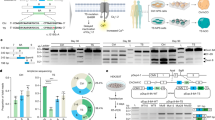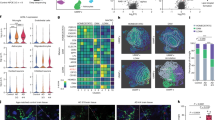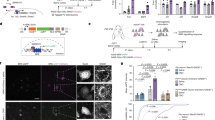Abstract
A DEFICIENCY of calcium-stimulated adenosine triphosphatase (Ca2+-ATPase) is seen in brains of mice which are susceptible to audiogenic seizures1. After studying five other animal models of idiopathic epilepsy we concluded that brain nucleotide metabolism is altered in the epileptic animals and that the lesion might not be confined to Ca2+-ATPase2. We speculated that the deficiency of Ca2+-ATPase, which we observed in membrane-enriched brain homogenates, was the expression of incompetent brain cell ecto-ATPases. We have suggested that the genesis of seizures was related to a protracted action of translocated cytoplasmic ATP on cell membranes3 when the latter were deficient in this enzyme. We report here a significant deletion of ecto-ATPase in cultured glia cells raised from neonatal, seizure-prone mice. Between the ages of 20 to 35 d, mice of the DBA/2N strain convulse after repeated exposure to loud noise. Before and after this period, susceptibility to induced convulsions is minimal or absent. Mice of the C57 B1/6N strain are not afflicted in this manner.
This is a preview of subscription content, access via your institution
Access options
Subscribe to this journal
Receive 51 print issues and online access
$199.00 per year
only $3.90 per issue
Buy this article
- Purchase on Springer Link
- Instant access to full article PDF
Prices may be subject to local taxes which are calculated during checkout
Similar content being viewed by others
References
Rosenblatt, D. E., Lauter, C. J. & Trams, E. G. J. Neurochem. 27, 1299–1304 (1976).
Rosenblatt, D. E., Lauter, C. J., Baird, H. R. & Trams, E. G. J. molec. Med. 2, 137–144 (1977).
Trams, E. G. Nature 252, 480–482 (1974).
Shein, H. M., Britva, A., Hess, A. H. & Selkoe, D. J. Brain Res. 19, 497–501 (1970).
Trams, E. G. & Lauter, C. J. Biochim. biophys. Acta 345, 180–197 (1974).
DePierre, J. W. & Karnovsky, M. L. J. biol. Chem. 249, 7111–7120 (1974).
Weil-Malherbe, H. & Green, R. H. Biochem. J. 49, 286–292 (1951).
Ames, B. N. & Dubin, D. T. J. biol. Chem. 235, 769–775 (1960).
Lauter, C. J., de Duffard, A. M. E. & Trams, E. G. Fedn Proc. 36, 1007 (1977).
Lowry, O. H., Rosebrough, N. J., Farr, A. L. & Randall, R. J. J. biol. Chem. 193, 265–275 (1951).
Henn, F. A. & Hamberger, A. Proc. natn. Acad. Sci. U.S.A. 68, 2686–2690 (1971).
Henn, F. A., Anderson, D. J. & Sellstrom, A. Nature 266, 637–638 (1977).
Author information
Authors and Affiliations
Rights and permissions
About this article
Cite this article
TRAMS, E., LAUTER, C. Ecto-ATPase deficiency in glia of seizure-prone mice. Nature 271, 270–271 (1978). https://doi.org/10.1038/271270a0
Received:
Accepted:
Published:
Issue Date:
DOI: https://doi.org/10.1038/271270a0
This article is cited by
-
NTPDase and 5′-nucleotidase activities in synaptosomes of rabbits experimentally infected with BoHV-5
Journal of NeuroVirology (2015)
-
Reduced cortical ecto-ATPase activity in rat brains during prolonged status epilepticus induced by sequential administration of lithium and pilocarpine
Molecular and Chemical Neuropathology (1997)
Comments
By submitting a comment you agree to abide by our Terms and Community Guidelines. If you find something abusive or that does not comply with our terms or guidelines please flag it as inappropriate.



